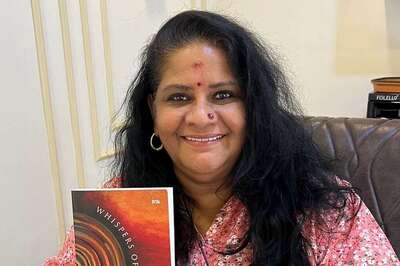
views
New Delhi: Former Solicitor General Harish Salve expressing his opinion in favour of the Citizenship Amendment Act said the principle of equality does not mean that every law must have universal application.
Salve in an article in a leading national daily said the principle of equality would not result in taking away the power of making classification from the state.
"If a law deals equally with members of a defined class, it is not open to the charge of denial of equal protection on the ground that it has no application to other persons," said Salve citing that CAA's avowed objective is to enable conferment of Indian citizenship upon members of minority communities who hail from Afghanistan, Bangladesh, and Pakistan. He rubbished the criticism against CAA being anti-Muslim.
Salve said there is no law, rule or notification published -- or even a draft circulated -- that would suggest that the government has any intent, which is to send out Muslims from India.
"The Prime Minister has denied it. If any procedure put in place requires Muslims alone all over India to prove their citizenship in a manner more onerous than that applicable to any other community, such a procedure would be unconstitutional," he added.
Salve insisted that classification on the basis of religion is not per se unconstitutional, as the Constitution confers special rights upon members of minority religious communities in India.
He said if the law was broader and allowed members of all religious communities from Pakistan, Bangladesh and Afghanistan to migrate into India, then there was no need for borders.
He added that the citizenship of a country is presently based on similar principles followed in almost all countries, which are governed through the rule of law.
Detailing on acquiring citizenship, he said it is by birth, descent, naturalization or when territories are acquired, and people are categorised illegal migrants after they enter a country without necessary permission, and then they are liable to face deportation.
He insisted that the Citizenship (Amendment) Bill 2016 was introduced in the Lok Sabha on July 19, 2016. After this, the Bill, for further scrutiny, was referred to a joint committee of both Houses of Parliament. This committee recommended the Bill in its report on January 4, 2019.
"The controversy over the Citizenship (Amendment) Act appears to simmer -- and of late has led to communal riots. I have failed hopelessly to comprehend what the controversy is all about," said Salve in the article.
Detailing on the procedure of deportation, Salve said that illegal migrants are deported under the Foreigners Act 1946 and the Citizenship Act 1955.
He added that according to the law of 1946 and 1955 Muslim migrants from Pakistan and Bangladesh can be deported, but if CAA was taken away, then Muslims from Bangladesh or from another country who have been identified as illegal migrants would be liable to be deported similar to illegal migrants who are Sikh, Buddhist or Christian.
Salve said it is difficult to accept the criticism of CAA as being discriminatory in nature, as it is a law which is designed to confer the benefit on an identified class of persons, and which identification is based on a rational criterion.
He reiterated that CAA is not discriminatory on the ground that the legislation could have created a wider class, arrived at by applying a broader criterion for identifying the class of those who would benefit by the legislation.
Citing the demographic consequences of the Bangladesh war in the northeast, which led to Assam Accord, Salve said this resulted in the enactment of the Illegal Migrants (Determination by Tribunals) Act, which further convoluted the process to identify and remove illegal migrants.
"This law was successfully challenged by those who claimed that it was a betrayal of the Assam Accord -- the Supreme Court in Sonowal's case, taking the government to task for its failure to identify and deport illegal migrants -- it is in this case that the idea of a detention centre was mooted," added Salve.
Detailing on National Register of Indian citizens, he added that rules were framed in 2003 after the process of enumeration, throughout the country in a house-to-house approach, where doubtful cases were selected for further inquiry. And these rules have existed since then, but have not been operationalized yet.
Salve emphasized that even the Supreme Court has repeatedly held that what is better for the country should be left with the government to determine which of many possible schemes is the best for the people of the country.
"Do we really need proof that minorities are persecuted in these Islamic republics? How can Parliament be faulted for coming to the conclusion that such minorities in the three named neighbours need to be protected?" questioned Salve.
He reiterated that even more tenuous argument is finding discrimination as the law does not extend to every citizen of every country (or some countries) who have suffered religious persecution.
Salve also added that special measures taken to address demographic distortions caused by the Bangladesh conflict in defined geographic areas could not become a template for the rest of the country.
Concluding the article, Salve said: "Polarisation between castes and religions is as old at least as the notion of modern India.
"I also find a growing polarisation between those who have enjoyed the perquisites of power over decades and between those who have replaced them. Add to this mix the fact that certain ideologies which are but dust on the bookshelves of political history in the countries of their origin continue to be romanced by intellectuals, some of whom dominate civil society and civil discourse."




















Comments
0 comment